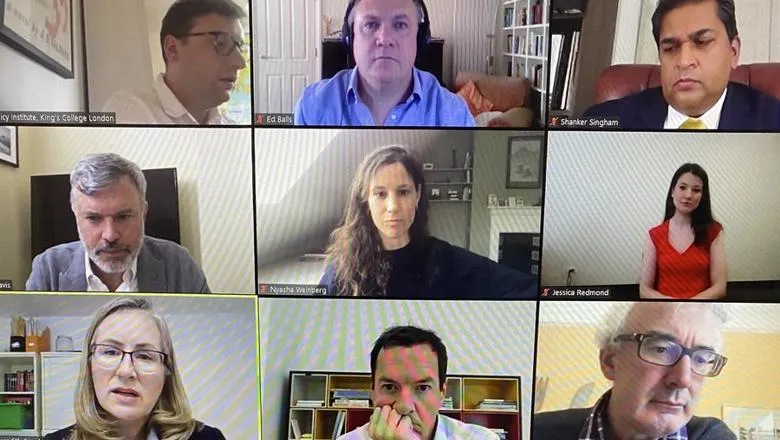Curiously, the member of the cabinet most in favour of engagement with China is the prime minister. He is perfectly prepared to resist some of the pressure from his backbenches
George Osborne
14 May 2020
Will prioritising a UK-US trade agreement make or break 'Global Britain'?
That was the topic of discussion for a panel of academics and former politicians at an event hosted by the Strand Group.

The event, held on 12 May, saw the launch of a new paper for Harvard Kennedy School's Mossavar-Rahmani Center for Business and Government on the prospects for a US-UK Free Trade Agreement.
The webinar, watched by almost 300 people, took place on Zoom and featured Labour MP and shadow chancellor Ed Balls and former Conservative chancellor George Osborne, among a panel of academics and experts.
The findings of the report, co-authored by Ed Balls, Nyasha Weinberg, Jessica Redmond and Simon Borumand, were presented followed by a panel discussion that included:
- Dr Meredith Crowley, Reader in International Economics at Cambridge University
- Lord Nick Macpherson, chair of Hoare’s Bank, Visiting Professor King’s College, London and former permanent secretary to the treasury
- George Osborne, editor of the Evening Standard and former Chancellor of the Exchequer
- Shanker Singham, CEO Competere, Academic Fellow IEA, and former advisor to both USTR and the UK trade secretary
The report, Transatlantic Trade and Economic Cooperation through the Pandemic: Will prioritising a UK-US Free Trade Agreement make or break ‘Global Britain’?, casts doubt on whether a full trade deal before the US presidential election in November is possible and suggests that a smaller ‘mini-deal’ could cause issues due to growing anti-China trade policies following the COVID19 epidemic.
Lord Macpherson, a visiting professor with the Strand Group, which is supported by the Department of Political Economy, said: “I hope the UK won’t give up on multilateralism... it’s driven most of our prosperity in the post war years. However, when it comes to international trade deals, might is right. I do think there is a strong possibility of a no deal happening by the end of the year, with the consequences submerged by a wider depression.”
Dr Meredith Crowley, stated that trade policy, particularly free trade with the US, would not make substantive contribution towards economic recovery and that the big issue for the UK in negotiating a trade deal with the US was the future of digital services tax.
Discussing UK/US/China relations, Mr Osborne said he was confident that Boris Johnson was not going to succumb to pressure. He said: “Multilateralism is a way for countries to co-operate on shared objectives. You cannot have this and side with the US in isolating China from the global system. It is the longest continuously existing civilisation in the world.
“Curiously, the member of the cabinet most in favour of engagement with China is the prime minister. He is perfectly prepared to resist some of the pressure from his backbenches.”
Shanker Singham was confident that a trade deal could be achieved because the support for US-UK trade deal is bipartisan so won’t change significantly under different president and that for both the US and the UK a trade declaration was important for political purposes.
Mr Balls, visiting professor with the Strand Group, summed up the discussion speculating that in light of more trade pressure on China from the US there could be more co-operation between the US and the EU.
With the event taking place at the same time as a House of Commons treasury questions session, Mr Osborne announced that it was good to be asked questions by former counterpart again. Mr Balls pointed out that, now as then, he “wasn’t expecting any answers”.
